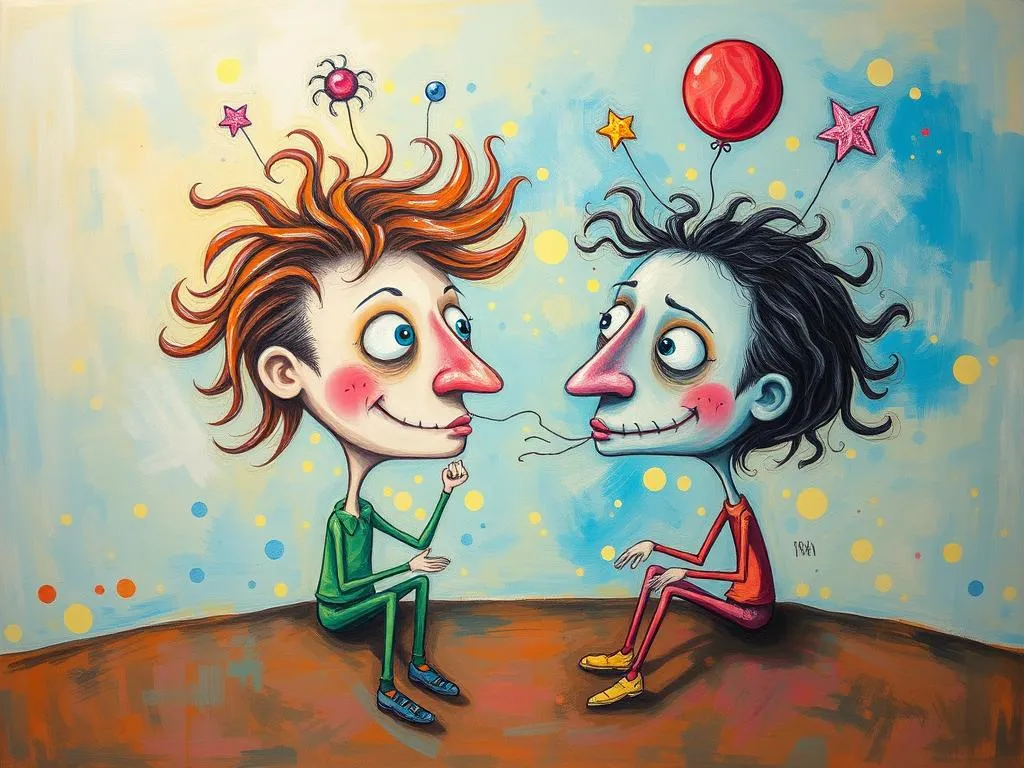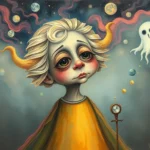
Dreams are a fascinating realm where our unconscious mind engages in a dialogue with our conscious thoughts and emotions. Among the myriad themes that can emerge in our dreams, the symbolism surrounding bipolar disorder captivates many. This topic intrigues not only those directly affected by the condition but also those who seek to understand the complexities of human emotions and mental health. Dreams about bipolar disease can serve as powerful reflections of our inner struggles, relationships, and perceptions of mental wellness.
Symbolism and Meaning
When exploring dreams related to bipolar disease, it is essential to recognize that bipolar disorder itself is characterized by extreme mood swings, oscillating between manic highs and depressive lows. This duality often manifests in dreams as symbolic representations of internal conflict, emotional turbulence, or the search for balance.
One common symbol in these dreams is the weather. Storms or sudden changes in weather can represent the chaotic nature of one’s emotions. For example, a dream featuring a raging storm may reflect feelings of being overwhelmed or out of control, mirroring the experience of a manic episode. Conversely, a serene and sunny landscape could signify moments of calm, hope, or the desire for stability.
Another potent symbol is mirrors. Mirrors in dreams often represent self-reflection and can indicate a struggle with identity. For someone dealing with bipolar disorder, a mirror might show fragmented or distorted images, symbolizing the feeling of being divided between different moods. This duality can provoke deep introspection, urging the dreamer to confront various aspects of themselves and their emotional states.
The presence of characters in dreams related to bipolar disorder can also be revealing. A dream featuring a supportive friend or family member might suggest a longing for connection and understanding during difficult times. Alternatively, a figure representing fear or judgment could reflect the stigma often associated with mental health issues, emphasizing feelings of isolation or misunderstanding.
In a broader sense, dreams that incorporate color are significant as well. Bright, vibrant colors may signify the highs of manic states, filled with creativity and energy, while muted or dark colors could indicate the depths of depression. The interplay of colors in a dream can thus reflect the dreamer’s emotional landscape, serving as a metaphor for their experiences with bipolar disorder.
Key Scenarios and Variations
Dreams about bipolar disorder can present in numerous scenarios, each providing unique insights into the dreamer’s psyche. One common scenario involves loss of control. In such dreams, the individual might find themselves in chaotic situations, unable to dictate their actions or feelings. This scenario can highlight feelings of helplessness or fear regarding their mental state, echoing real-life struggles with managing bipolar symptoms.
Another variation might involve being chased or pursued. This can symbolize an attempt to escape from one’s feelings or the stigma associated with bipolar disorder. The act of running away in a dream often indicates a desire to evade emotional pain, which could lead to an increased awareness of the need for coping mechanisms or support.
Revisiting the past is another prevalent theme. Dreams that take the individual back to significant moments in their life can provide insights into unresolved issues or feelings. For someone with a history of bipolar disorder, this could manifest as a confrontation with past decisions or relationships that were impacted by their condition. Reflecting on these dreams can help elucidate how past experiences shape current emotional responses.
Moreover, dreams involving confrontation with one’s darker self or a shadow figure can be powerful. This might represent the fear of acknowledging the less desirable aspects of one’s personality or mental health struggles. Engaging with this shadow self in a dream may offer an opportunity for acceptance and integration of these parts, facilitating healing and growth.
The context of the dream can also shift interpretations significantly. For instance, dreaming of hospitalization or therapy can evoke feelings of vulnerability and the need for support, while scenarios involving celebration or achievement may indicate a desire for reassurance that one can thrive despite their challenges. Each scenario invites the dreamer to explore their emotional landscape and consider how their dreams mirror their conscious experiences.
Real-Life Connections and Takeaways
Understanding dreams about bipolar disorder requires personal reflection and a willingness to connect these nocturnal narratives with real-life experiences. Readers are encouraged to contemplate their own dreams and the emotions they evoke. Are there recurring themes? Do certain symbols resonate more profoundly than others? This self-reflection can be a vital step in recognizing patterns in one’s emotional health and behavior.
For those who experience dreams related to bipolar disorder, it may be beneficial to engage in journaling. Recording dreams upon waking can help capture fleeting images and emotions, allowing for deeper analysis over time. By revisiting these notes, individuals may uncover recurring symbols or themes, providing insights into their mental state and emotional needs.
Additionally, seeking support from mental health professionals can provide a safe space to discuss these dreams and their meanings. Therapists can offer guidance on interpreting dreams and integrating these insights into one’s daily life. They can also help individuals develop coping strategies for managing the complexities of living with bipolar disorder.
Moreover, practicing mindfulness can enhance the understanding of emotions as they arise in waking life. Mindfulness encourages individuals to observe their thoughts and feelings without judgment, fostering a greater awareness of how these emotions fluctuate. This practice can help bridge the gap between dream experiences and daily emotional landscapes, promoting resilience and emotional regulation.
Ultimately, dreams about bipolar disorder invite individuals to explore their emotional depths and confront the complexities of their mental health journey. By engaging with these dreams, reflecting on their meanings, and seeking connections to real-life experiences, dreamers can gain valuable insights into their lives and foster personal growth.
In conclusion, the symbolism of bipolar disorder in dreams encompasses a rich tapestry of emotions, experiences, and insights. As dreamers navigate these nocturnal narratives, they embark on a journey of self-discovery and healing, transforming their dreams into a powerful tool for understanding and managing their mental health. Embracing this exploration can lead to a greater sense of balance and an enriched emotional experience, ultimately cultivating a more profound connection with oneself and one’s journey.

